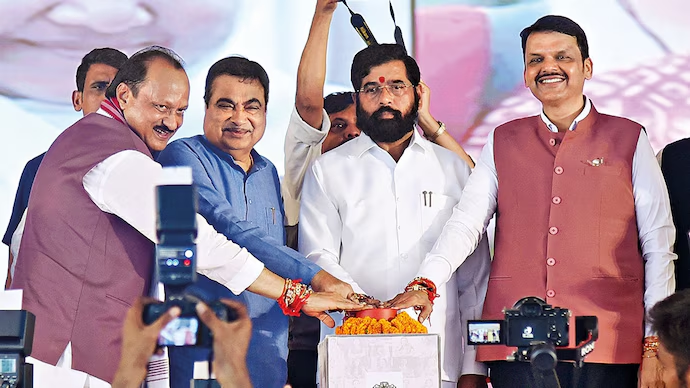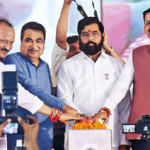As it prepares for the November 20, 2024, Assembly elections, Maharashtra is presently in the forefront of political activities. With a complicated political environment moulded by recent disputes and calculated moves, the events of today offer important new perspectives on the electoral dynamics of the state.
Significant Political Events
Rebel Candidates Are Suspended
After suspending 28 dissident candidates for six years for “anti-party” conduct, the Maharashtra Congress grabbed headlines. The Nationalist Congress Party (NCP), led by Sharad Pawar, the Congress, and the Shiv Sena (Uddhav Balasaheb Thackeray faction) are the official nominees of the Maha Vikas Aghadi (MVA) coalition, against whom these candidates are running [1]. The internal conflict within the Congress party and its efforts to present a unified face before the elections are highlighted by this action.
The Controversial Claims of Amit Shah
By claiming that Maharashtra Congress chief Nana Patole has consented to a demand for a 10% quota for Muslims in employment and education at the expense of current reservations for Scheduled Castes (SC), Scheduled Tribes (ST), and Other Backward Classes (OBC), Union Home Minister Amit Shah has sparked controversy. Patole strongly refuted this allegation, emphasising the continuous conflict between the Congress and the BJP as they compete for the support of voters[1][2].
The Ruling Alliance: A Critique by Shard Pawar
NCP leader Sharad Pawar attacked the ruling Mahayuti alliance at a rally, saying it is ignoring farmers who are facing falling agricultural prices. Pawar’s comments are indicative of larger worries about Maharashtra’s agricultural hardship, which may have a big impact on voter opinion in rural areas[1][4].
Strategies for Election Campaigns
With the new slogan “Ek hain toh safe hain” (Together, we are safe), the BJP is stepping up its campaign and attempting to unite groups while also denouncing the Congress for supposedly encouraging divisive politics. All around Maharashtra, this slogan has been used heavily in rallies and commercials. During his vigorous campaign, Prime Minister Narendra Modi has attacked opposition narratives while highlighting progress and unity. Opposition leaders, however, have criticised this strategy, claiming that such slogans conceal more serious social problems [5][6].
Consequences for the Political Environment of Maharashtra
In addition to party allegiances, the forthcoming elections also touch on larger social concerns like caste relations, agricultural hardship, and regional ambitions. Voter alignment is made more difficult by the fragmented political environment of Maharashtra, which includes several groups within major parties like the NCP and Shiv Sena. For years to come, Maharashtra’s policy directions and alliances will probably change as a result of this election.
Important People and Parties
The Maharashtra Congress Chief, Nana Patole, is a key player in resolving disputes within the party.
NCP leader Sharad Pawar is a critic of the ruling coalition who focusses on issues affecting farmers.
The Union Home Minister, Amit Shah, is a crucial BJP strategist who has made contentious remarks about reservations.
Prime Minister Narendra Modi: Heading the BJP’s campaign with an emphasis on development and unity.
Serious Debates
Internal strife within Congress is highlighted by the suspension of dissident candidates.
Significant political discussion has been generated by Amit Shah’s accusations against Nana Patole over quota rules.
Sharad Pawar’s criticism of the government’s disregard for farmers strikes a chord with voters in rural areas who are struggling financially.
Conclusion:
The interaction of internal party dynamics, calculated campaigning, and urgent socioeconomic issues will be critical in determining electoral outcomes as Maharashtra’s Assembly elections draw near. In addition to influencing the current electoral environment, the choices taken by important political players today will also determine the direction of future administration in one of India’s most important states. Ahead of November 20, the next several days will be crucial as parties adjust their plans and react to changing voter attitudes.
Citations:
[1] https://www.moneycontrol.com/news/india/maharashtra-assembly-elections-2024-live-news-updates-11-november-2024-liveblog-12862435.html
[2] https://indianexpress.com/article/political-pulse/maharashtra-elections-mva-mahayuti-debutants-9647703/
[3] https://timesofindia.indiatimes.com/city/mumbai/raj-thackeray-criticizes-cm-shinde-over-political-flip-flops-in-maharashtra/articleshow/114956946.cms
[4] https://www.thehindu.com/opinion/editorial/crowd-of-confusion-on-the-maharashtra-political-scene-polls/article68846189.ece
[5] https://indianexpress.com/article/political-pulse/maharashtra-assembly-elections-2024-mahayuti-mva-bjp-shiv-sena-congress-9653773/
[6] https://www.indiatoday.in/elections/assembly/video/sharad-pawar-rules-out-political-realignment-in-maharashtra-ytvd-2630194-2024-11-08
[7] https://indianexpress.com/article/political-pulse/decode-politics-maharashtra-assembly-elections-devendra-fadnavis-rahul-gandhi-red-book-9659616/
[8] https://mahasec.maharashtra.gov.in/Site/ViewPDFList?doctype=faDA6qE96OTTUtLBQOLDeuJyPySwvsDJUy3S3ERxf94%2FxeFZfbXwZwdfaPxWjUsPaHGN1ELM3vpkpzXY8iZorxMrsTKrgjaOH8s9JWPkXnE%3D









